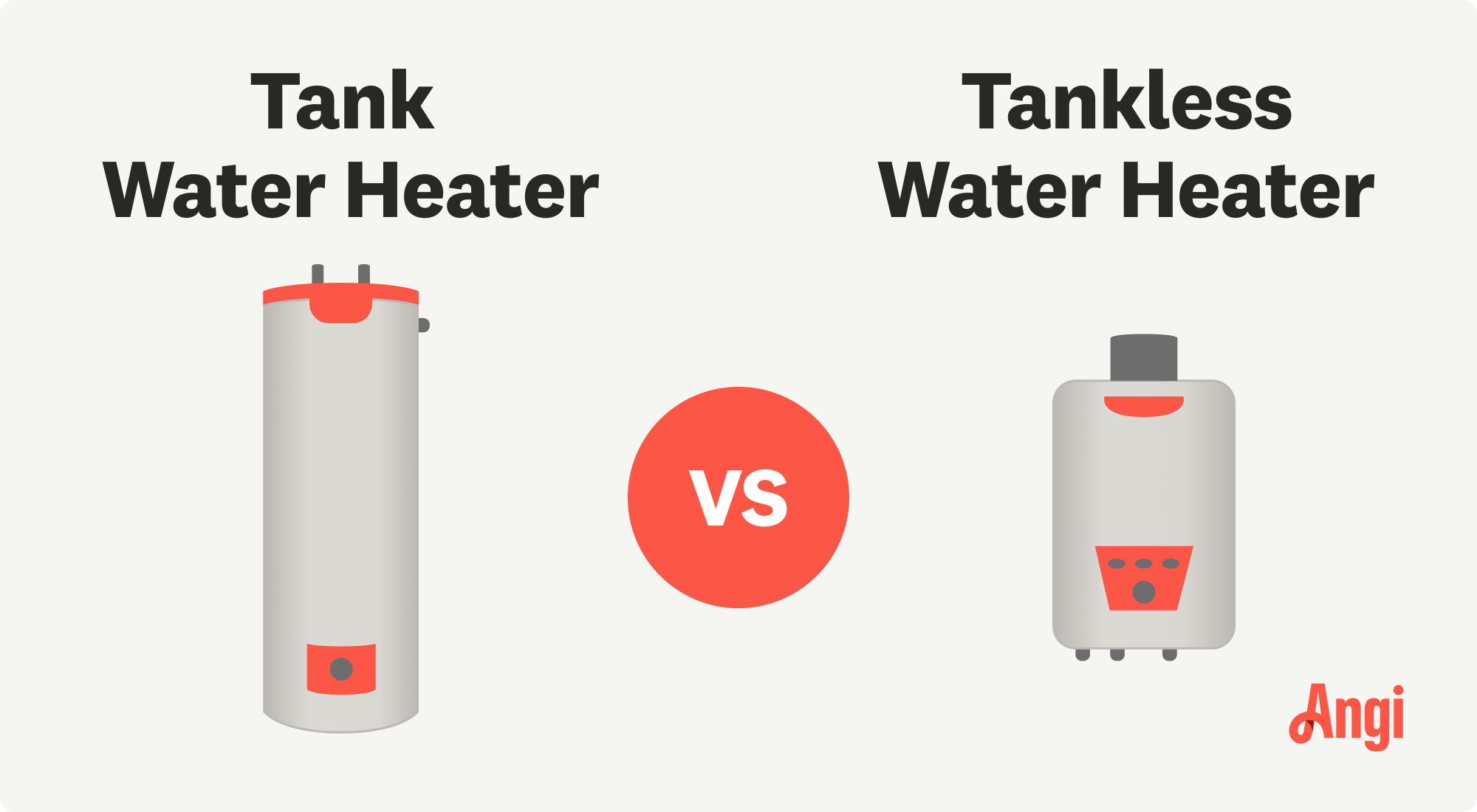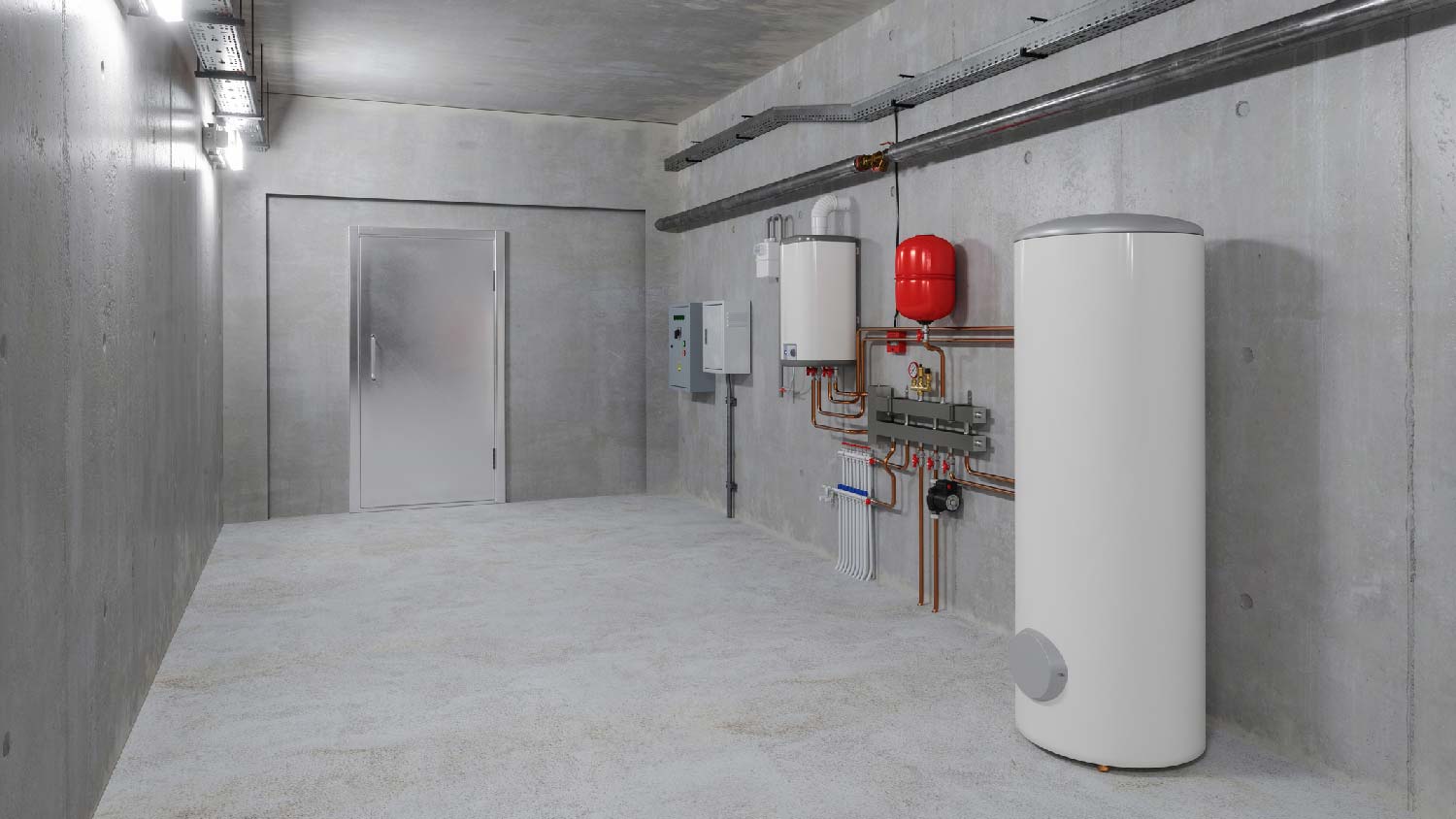
Running out of hot water too quickly or hearing strange noises when you call for hot water? Use this water heater repair cost guide to see what a fix will cost.
Find out if it’s time to replace your water heater


Your water heater won’t last forever.
If it’s older than 10 years, it likely needs to be replaced.
If you’re running out of hot water, you might need to repair it.
If your hot water heater is in a bad location, you may need to get a new one or relocate it.
Tankless water heaters last longer than conventional water heaters.
There’s nothing like a hot shower to start your morning off right and sinking into a bed of freshly washed sheets at the end of a long day. You can thank your trusty water heater for these little luxuries. You may wonder, how long does a water heater last? And what are the signs it’s on its last legs? Most water heaters last 6 to 15 years, with an average lifespan of about 11 years. However, factors like the type of water heater you have, your home’s water quality and usage, and maintenance can impact how long it lasts.
We highly recommend inspecting your water heater annually for signs of degradation. If you spot any potential warning signs, consider contacting a local plumber.

| Tank Water Heaters | Tank Water Heaters Tankless Water Heaters |
|---|---|
| More affordable installation | Expensive installation |
| Instant hot water | Takes longer to get hot water |
| Shorter lifespan | Longer lifespan |
| Requires more energy and space | Uses less energy and space |
The lifespan of a water heater depends on whether it’s conventional or tankless; tankless water heaters last much longer, but they are most expensive.
A conventional hot water heater can last anywhere from 6 to 12 years, but its life expectancy can vary widely depending on many factors. Larger families place a higher demand on water heaters, which can shorten their lifespan. If you have hard water, your system may accumulate sediment more quickly and wear down faster. By keeping up with regular water heater maintenance, you can ensure you get a longer lifespan out of your unit.
Tankless water heaters last much longer, often up to 20 years. A common issue for conventional water heaters is the failure of the tank itself; this isn’t an issue you have to worry about with a tankless water heater. Keep in mind, though, that a tankless water heater costs about $2,500 on average—roughly double the average cost to install a water heater with a tank ($1,300).
Electric water heaters have a longer lifespan than gas tank water heaters. Electric versions tend to last 10 to 15 years, while gast heaters last 6 to 12 years. Factors like your home's water quality, whether you conduct regular maintenance, and how much water your home uses will impact its longevity.
While most water heaters have an average lifespan of about 11 years, depending on factors, some can last longer (or need to be replaced sooner).
Water heaters that are used more frequently will have shorter lifespans. When the water heater needs to heat up large quantities of water, it needs to work harder to do so. In addition, the greater the volume of water running through the heater, the higher the corrosive effect of water on the appliance. Make sure you have a water heater that is appropriate for the size of your home and estimated regular usage—too small a unit will need to work twice as hard, leading to a shorter lifespan.
Performing regular water heater maintenance and making repairs as soon as they are necessary can prevent bigger problems from forming—ones that could lead to the water heater breaking down completely.
If you live somewhere with hard water, the higher mineral content can lead to build up and reduce the water heater’s efficiency and lifespan. Regardless of the hardness of your water, be sure to periodically flush the water heater system to remove buildup. Some newer models come equipped with a self-flushing feature.
Correct water heater installation is imperative. A water heater installation expert near you should be able to pick the best location for your water heater, after considering important factors such as ventilation, accessibility, and insulation.
Not every water heater model is created equal. Do your research and buy a brand with good reviews. You should also look for a water heater with a comprehensive warranty; manufacturers should stand by their products. Finally, read about the water heater’s construction materials. Porcelain casing, for example, can protect your unit from rusting and offer higher heat insulation.
Water heater problems could mean a simple fix, but they might also require complete replacement. Here are six signs that it’s time to replace your water heater.
All water heaters reach their limits eventually, some faster than others. This is especially true if your system hasn’t been well-maintained, such as by flushing and draining the hot water heater at least once a year.
Tank-type water heaters have a limited life span and a matching warranty of six, nine, or 12 years, which is a good indicator of what to expect. So if your hot water heater has aged past its prime—for whatever reason—then it’s probably a good idea to replace it.

If you find that you’re running out of hot water before you can get those dishes washed, the laundry done, or the kids bathed, then you may need a replacement or repair.
If your family requires a lot of hot water each day, then the issue could be that your tank capacity is simply not large enough to meet the demand. In that case, you might choose to replace your standard tank heater with a tankless model.
On the other hand, if your hot water heater is relatively new and has been well-maintained, you might be able to resolve the issue with some fairly simple repairs. You could just have a buildup of sediment, which can usually be resolved just by draining and flushing the system.
Then again, you might have a slightly more complex issue, such as a problem with the heating element. In that case, you should call in a local plumber. In addition to inspecting and replacing heating elements as needed, a plumber can also check your tank and pipes to ensure everything is clear and running smoothly.
If your power bills are costing you an arm and a leg, it could be that your water heater isn’t working properly or that you need a more energy-efficient model. If your existing system is already designed to be energy efficient, such as having an Energy Star label, then it could mean that your system needs a repair.
For instance, if contaminants are clogging your tank or pipes, then your system will need to work harder, driving up your energy costs. If flushing and draining the system don’t work, then you should consider calling in a local water heater pro for an inspection and repair.
If your hot water heater isn’t designed for energy efficiency—and most older models are not—then it may be worth your while to replace your system with one that is.
If you notice brown or reddish water when you turn on the faucet, the inside of your water heater tank may have started to corrode. If that’s the case, hire a plumber to investigate. They may be able to repair the tank by installing a new zinc anode rod, but if the tank is getting up there in age, it likely makes more sense just to replace the unit entirely.
Regularly check your water heater for signs of water pooling around the base. If you notice standing water, this could be a sign of a leak. However, water may also simply be condensation or simply another leak (for instance, a leak from outside into your basement—a problem in and of itself).
However, if your water heater is leaking, it’s important to replace it as soon as possible.
These small steps can increase the lifespan of your water and save you money on repairs and replacement.
Regular maintenance checks: While it’s important to have a professional perform regular water heater maintenance, it’s a good idea to do your own checks and look for any cracks or leaks that need to be addressed immediately.
Flush the tank: Once per year, flush the tank and have it cleaned.
Check the anode rod: The anode rod prevents the tank from corroding and from rust, but the anode rod itself can become rusty—when this happens, it needs to be replaced before the rust spreads to the rest of the tank.
Insulate: Insulating your water heater will help it work more efficiently.
Buy a water softener: Soft water has fewer minerals, which helps prevent buildup in the water heater.
Most water heaters come with some type of warranty. These warranties typically cover labor, defective parts, the tank’s lining, and the heat exchanger. Depending on the manufacturer and model, water heater warranties usually vary from 3 to 12 years. Tankless models often have longer warranties, ranging between 10 and 12 years. Be sure to research the warranties of each prospective water heater to find one that suits your needs.
Most water heaters last about a decade, though some high-efficiency and tankless models can last more than 20. If you notice any of these signs, it may be time to replace your unit.
No hot water
Tepid or lukewarm water
Water has a metallic taste
Water leaking from the unit
Discolored water when the hot water tap is on
Loud, random sounds coming from the water heater: popping, banging, or rumbling
Higher-than-usual utility bill costs
The average cost to replace a water heater is $850 to $1,700—this is for professional installation and includes the water heater itself. If you only need a repair, expect to pay an average of $600 on the cost to fix a hot water heater. Hiring a professional is always best; DIY water heater installation or repair is an advanced project that inexperienced homeowners should not try to tackle on their own.
From average costs to expert advice, get all the answers you need to get your job done.

Running out of hot water too quickly or hearing strange noises when you call for hot water? Use this water heater repair cost guide to see what a fix will cost.

Learn all the factors that influence the cost to install a heat pump water heater at your home.

A water heater flush costs $160 on average but can vary based on the unit size, type, labor, location, and more. Keep reading to learn how much you could pay.

Is your boiler behaving normally? These five questions about boilers will help you detect boiler problems before they cause big trouble.

If your water heater isn't heating up properly, you could have a drainage issue. These common causes of water heater not draining could be to blame.

Testing a water heater thermostat starts with shutting off the power and using a multimeter. Follow this guide on how to test your water heater thermostat.